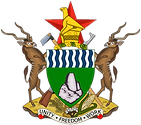
Friendship Bench Zimbabwe provides
sustainable community based psychological interventions that are evidence based, accessible and scalable.

WE ARE Reimagining the delivery of evidence-based mental healthcare in zimbabwe. Our vision is to have a friendship bench is within walking distance for all.
ABOUT US
The Friendship Bench is a Non-Governmental Organization (NGO) registered in Zimbabwe as a Private Voluntary Organization (PVO 12/21) with the Department of Social Service.
Our vision is a Friendship Bench within walking distance for all. With this inspiration, our mission is to get people out of kufungisisa - depression & anxiety - by creating safe spaces and a sense of belonging in communities to improve mental wellbeing and enhance quality of life. Guided by our values of empathy and connection, and anchored in over a decade of rigorous research (including a RCT published in the Journal of American Medical Association, JAMA) we have re-imagined the delivery of evidence-based mental healthcare.


Since 2019, Friendship Bench Zimbabwe has worked in partnership with the Government of Zimbabwe Ministry of Health and Child Care within the National Strategic Plan for Mental Health Services. Under Objective 2: Improving mental health awareness and community empowerment, activity 2.4 - Adoption of the Friendship Bench as a MoHCC programme to strengthen community based mental health and psychosocial support services in Zimbabwe. Read Here. Friendship Bench Zimbabwe is now in the process of handing over to the Government of Zimbabwe to become the doer at scale nationally.
Since 2000, Friendship Bench Zimbabwe has worked with the World Health Organisation (WHO) Zimbabwe to support the WHO’s Special Initiative for Mental Health. Learn more about the WHO Special Initiative Here.
HOW WE WORK
Friendship Bench Zimbabwe trains community health workers (also known as lay health workers) in partnership with the Ministry of Health and Child Care to provide basic Cognitive Behavioural Therapy with an emphasis on Problem Solving Therapy, activity scheduling and peer led group support. This task shifting approach means we can deliver an effective, affordable and sustainable solution to bridge the mental health treatment gap at a primary care level.
We deliver the talk therapy intervention to people with mild to moderate level common mental health disorders, such as anxiety and depression, known locally as ‘kufungisisa’- thinking too much. When people visit the Friendship Bench they are screened with a locally validated tool called the Shona Symptom Questionnaire (SSQ-14). If a person scores above the cut off point, they are suggested to stay and receive the one-on-one problem solving therapy. In practical terms, participants are taught a structured approach to identifying problems and find workable solutions.
We are not conventional, our trained CHWs sit with their clients outdoors, under the trees on wooden park benches in discreet safe spaces in the community. During training, a referral pathway is established for cases which are considered ‘red flags’ where a higher level of care is needed.
After the one-on-one talk therapy, Friendship Bench clients are introduced to a peer led support group known as Circle Kubatana Tose (CKT), meaning ‘holding hands together’. In these groups clients are connected to others who have sat on the Friendship Bench, received PST and became empowered to solve their own problems. Group members can relate to one another because they tend to come from the same community and have learned about the benefit of empathic listening. This safe space to talk in and be heard contributes to clients’ sense of belonging and reduces stigma surrounding mental health and sharing of personal issues.
In the CKT groups, clients are engaged in revenue generating opportunities, learning to crochet items out of recycled plastic bags and old VHS tape ribbon! Some items commonly made and then sold in the community are bags, hats and mats. So beyond the group being a form of ongoing support and behavioural activation, it becomes a vital part of the intervention due to the need for income generation in a country going through socio-economic distress. (SEE CKT)




